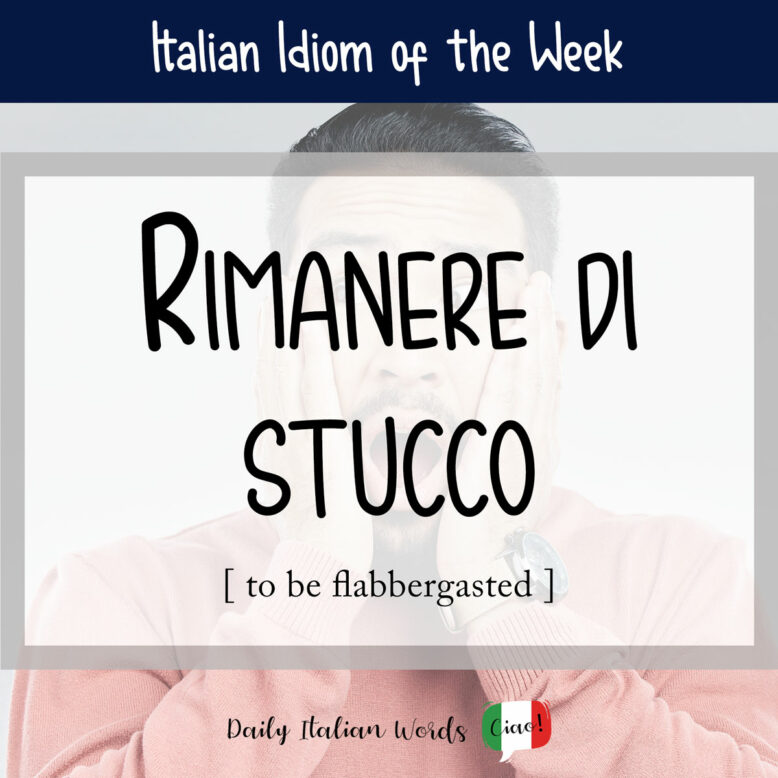I’m sure we’ve all encountered gossip or news at some point in our lives that has left us gaping in disbelief. In Italian, there’s a fantastic idiom you can employ to capture that feeling—rimanere di stucco—which essentially means being flabbergasted / dumbfounded.
rimanere di stucco
to be flabbergasted / dumbfounded

Stucco is the Italian word for plaster, stucco or putty, so the literal translation of the idiom is “to remain of plaster.” According to Franco Ciarleglio, author of Adagi con brio, this expression draws a comparison between the fast-setting quality of plaster and the sudden, shocked expression that seems to plaster across a person’s face upon hearing something surprising or unexpected.
Sono rimasto di stucco quando ho letto tutte le cose che aveva combinato.
I was flabbergasted when I read all the things he had done.
It is possible to swap the verb rimanere (to remain) with restare (to stay). Likewise, there are a few words that can replace stucco including sale (salt), sasso (stone) and princisbecco (pinchbeck), with no change to the meaning of the expression.
Ci sono rimasto di sasso!
I was flabbergasted!
According to Focus Junior, numerous ancient myths recount tales of individuals turning into salt statues, which is where the synonym rimanere di sale comes from. For example, Lot’s wife received this punishment for defying God’s command not to look back as Sodom and Gomorrah faced divine destruction.

Heather Broster is a graduate with honours in linguistics from the University of Western Ontario. She is an aspiring polyglot, proficient in English and Italian, as well as Japanese, Welsh, and French to varying degrees of fluency. Originally from Toronto, Heather has resided in various countries, notably Italy for a period of six years. Her primary focus lies in the fields of language acquisition, education, and bilingual instruction.


